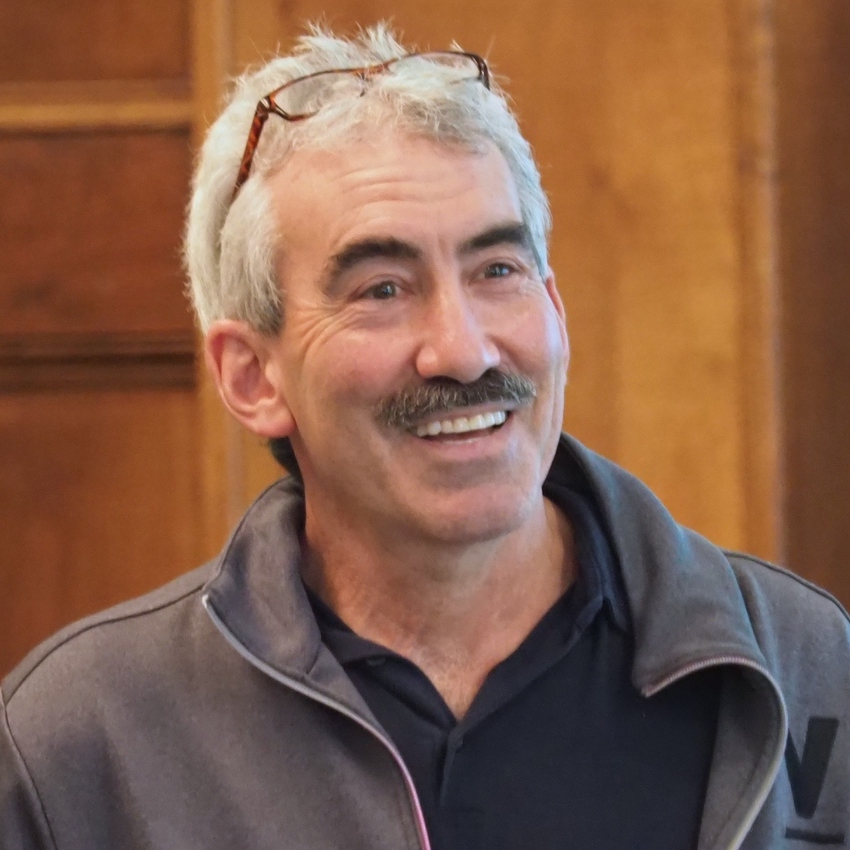George Loewenstein: On a Functional Theory of Boredom
George Loewenstein, PhD is the Herbert A. Simon Professor of Economics and Psychology in the Social and Decision Sciences Department in the Dietrich College of Humanities and Social Sciences at Carnegie Mellon University and is the director of the Center for Behavioral Decision Research.
George received his PhD in economics from Yale but was always interested in topics outside of the field. At one point, he considered switching from economics to another major but was advised to remain: “We need you here,” he was told by a sage researcher. We’re glad he did.
George may not be a household name, but he is a rockstar in the world of behavioral science. Nobel laureate Richard Thaler dedicated his last book, Misbehaving, to George, along with their colleague Colin Camerer. George’s insights into behavior and decision making are legendary and he is recognized as one of the founders of behavioral economics, in part because he was literally at the table when the field was named “behavioral economics.”
During his career, George has indulged his curiosities in research projects that span an incredibly wide variety of topics including risk, confidence, the effects of feelings, emotions, wanting and enjoying sex, sequencing, preferences, bargaining, incentives, privacy, healthy behaviors, investing, empathy, and sympathy…to name but a few. George’s work has been cited nearly 100,000 times in published articles and peer-reviewed papers. He’s not only remarkably curious, but he’s also remarkably productive. His book of essays titled Exotic Preferences is a terrific read and provides some insight into this extremely talented man.
We were excited to have George as a guest because his comments can be so insightful that they can be pondered for hours, and because he is so rarely recorded (and we are grateful to Linda Babcock for her support and participation in our conversation). We focused on some new work George is doing on the subject of boredom with a graduate student, Amanda Markey. We were surprised to learn that their work is breaking ground as there is no comprehensive functional theory for boredom. And in the category of not knowing where a conversation might go, we compared individual experiences of boredom (and flow).
In our grooving session, we discussed some of the implications of boredom in the workplace and ways you could make meetings more successful. We also touched on the temporal nature of attention and George’s comment to “use it or lose it.” Finally, we returned to a favorite topic whether it’s a good idea to listen to music while we work.
We hope you enjoy this rare recorded conversation with George Loewenstein.
Podcast: Play in new window | Download
AIRDATE: April 21, 2019 EPISODE 67
Podcast: Play in new window | Download
George Loewenstein: On a Functional Theory of Boredom
Featured Guest
LINKS
George Loewenstein: https://www.cmu.edu/dietrich/sds/people/faculty/george-loewenstein.html
George’s H-Index: https://scholar.google.com/citations?user=8nyQzDsAAAAJ&hl=en
Linda Babcock: https://www.cmu.edu/dietrich/sds/people/faculty/linda-babcock.html
Exotic Preferences: https://global.oup.com/academic/product/exotic-preferences-9780199257072?cc=us&lang=en&
Carnegie Mellon University: https://www.cmu.edu/
CMU Social and Decision Sciences Department: https://www.cmu.edu/dietrich/
Center for Behavioral Decision Research: https://cbdr.cmu.edu/
Richard Thaler, PhD: https://www.chicagobooth.edu/faculty/directory/t/richard-h-thaler
Colin Camerer: http://www.its.caltech.edu/~camerer/camerer.html
Amanda Markey: https://www.linkedin.com/in/amanda-markey-026b5914/
Kurt Nelson: @motivationguru and https://www.linkedin.com/in/kurtwnelson/
Tim Houlihan: @THoulihan and https://www.linkedin.com/in/tim-houlihan-b-e/
Listen to Behavioral Grooves: https://behavioralgrooves.podbean.com/












